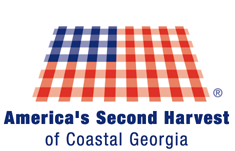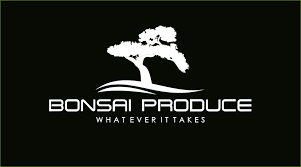The Food and Drug Administration released its 600-plus page Food Traceability Final Rule on Nov. 15, 2022. The weighty tome outlines the FDA’s additional record-keeping requirements for manufacturers, processors, packers and shippers of foods on the FDA’s Food Traceability List, which includes fresh produce staples. Foods subject to the final rule requirements were determined based on factors Congress identified in Section 204 of the FDA Food Safety Modernization Act.
“To help ensure the safety of food and its ingredients through all steps in its journey, we must get better at following its movement. It’s just that simple,” Frank Yiannas, FDA deputy commissioner for food policy and response, said in a stakeholder call following the announcement.
At the heart of the final rule is the expectation that individuals contacting food will record critical facts associated with key milestones in the food supply chain journey, such as harvesting or cooling. Specifically, the FDA expects persons contacting food on the Food Traceability List to record “key data elements” at “critical tracking events” and provide this information to the FDA within 24 hours or a pre-arranged timeframe.
“Having this information is going to let us alert the public more rapidly to avoid certain food in the event of a food outbreak,” Yiannas said. “It’s going to allow us to remove contaminated food quicker from the marketplace as a secondary prevention, and it's going to help us become more effective at rapidly evaluating why the outbreak happened in the first place. We’ll be able to conduct root cause analysis so that we can prevent these outbreaks from happening again.”
This rule will cover domestic production throughout the entire food supply chain, as well as foreign companies producing food for consumption in the U.S.
What is the Food Traceability List?
The Food Traceability List is the FDA’s roundup of specific foods that require additional record-keeping requirements under the FDA’s Food Safety Modernization Act Section 204 and includes the many fresh produce commodities.
According to the FDA’s Katie Vierk, director of the division of public health informatics and analytics, the foods on the list were determined using a risk ranking model that considered factors such as frequency of outbreaks and occurrences of illnesses, as well as criteria such as the likelihood of contamination and potential for pathogen growth.
Key dates to know
- Jan. 20, 2023: Estimated date that the Final Rule goes into effect, following a 60-day waiting period after publication.
- Jan. 20, 2026: Enforcement date. Compliance and record-keeping requirements go into effect.
What this means for fresh produce
“Rule 204 will go a long way toward enabling faster response to recalls and outbreak investigations, ultimately protecting public health and fostering consumer confidence,” Alyson Sharron, vice president of marketing at iFoodDS, told The Packer. “While the compliance date of Jan. 20, 2026, is seemingly light-years away, Rule 204 is complex — especially for grocers, foodservice operators, processors and independent distribution centers.”
Jason Varni, senior director of solutions at iTradeNetwork, noted that many companies already collect the data they need for compliance with Section 204. Further, he’s encouraged by the concerted effort from groups like GS1, International Fresh Produce Association and Canadian Produce Marketing Association to provide guidance on data sharing across the supply chain.
“The FDA was very measured in taking into account the feedback and concerns it received over the past two years from those subject to the FSMA 204 rule. It has been reorganized in several ways to make compliance less complicated and more approachable,” Varni told The Packer. “It will allow companies to find manageable ways to capture, store and share the required Key Data Elements with their trading partners.”
The final rule was informed by over 1,100 stakeholder comments, according to the FDA. The agency took the feedback into consideration when drafting requirements, timelines and exceptions. The FDA says its aim is to create a universal traceability language through FSMA rulemaking. This vision, leveraged with greater tech-enabled traceability capabilities and compliance expectations, will “connect the dots and allow traceability to scale a little bit easier," Yiannas said.
How to prepare for compliance
“IFPA is committed to working with the FDA to help our members understand and comply with the requirements of the final rule,” Ed Treacy, vice president of supply chain and sustainability at the International Fresh Produce Association, said in a news release. “We appreciate that the major concerns we had about the draft rule have been addressed. We encourage our members to participate in upcoming opportunities to learn more about how this rule impacts their business."
According to Sharron at iFoodDS, businesses that begin the process of implementing record-keeping plans now will gain a competitive advantage. “iFoodDS welcomes the opportunity to work with customers on solutions that work seamlessly with their workflows and enable supply chain collaboration, visibility and insight,” Sharron said.
Varni sees this moment as an opportunity to improve end-to-end traceability. “At iTradeNetwork, we have been working for over 20 years to connect companies upstream and downstream within the supply chain. We are very excited to partner with our member companies to not only achieve compliance for FSMA 204 rules and protect consumer health, but also realize the many ways these efforts will actually provide real ROI in terms of operational benefits and increased efficiencies,” he said.
The first step is to determine applicable food items included on the FDA Food Traceability List. Second, the FDA offers a tool to determine what, if any, compliance exemptions apply to specific operations.
The FDA will host a webinar on Dec. 7, 2022, providing an overview of the Final Rule.
On Dec. 14 at 12 p.m. EST, IFPA will host a virtual town hall, “FSMA 204 Traceability Final Rule,” moderated by Ed Treacy, IFPA traceability expert.



















